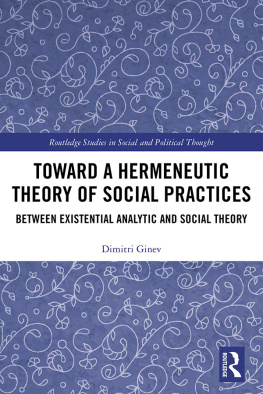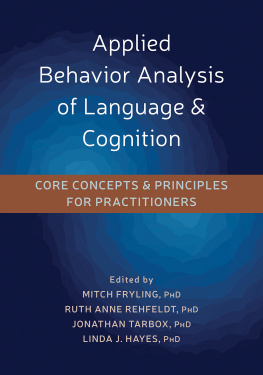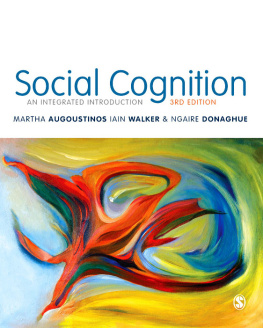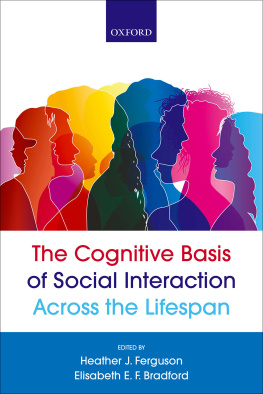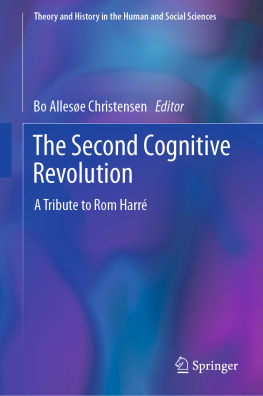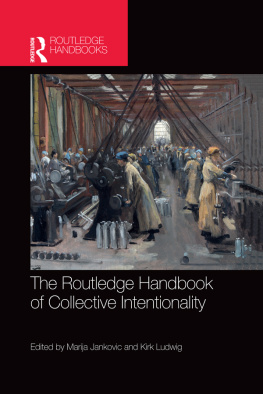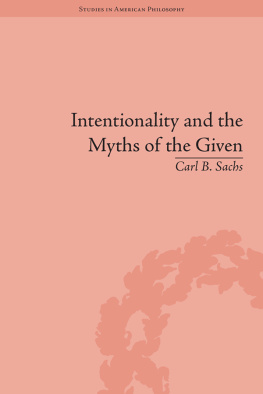Cover
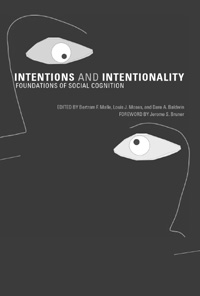
| title | : | Intentions and Intentionality : Foundations of Social Cognition |
| author | : | Malle, Bertram F.; Moses, Louis J.; Baldwin, Dare A. |
| publisher | : | MIT Press |
| isbn10 | asin | : | 0262632675 |
| print isbn13 | : | 9780262632676 |
| ebook isbn13 | : | 9780585481821 |
| language | : | English |
| subject | Intentionalism. |
| publication date | : | 2001 |
| lcc | : | BF619.5.I58 2001eb |
| ddc | : | 153.8 |
| subject | : | Intentionalism. |
Page i
Intentions and Intentionality
Page ii
This page intentionally left blank.
Page iii
Intentions and Intentionality
Foundations of Social Cognition
edited by Bertram F. Malle, Louis J. Moses, and Dare A. Baldwin

Page iv
2001 Massachusetts Institute of Technology
All rights reserved. No part of this book may be reproduced in any form by any electronic or mechanical means (including photocopying, recording, or information storage and retrieval) without permission in writing from the publisher.
Set in Sabon by The MIT Press.
Printed and bound in the United States of America.
Library of Congress Cataloging-in-Publication Data
Intentions and intentionality: foundations of social cognition / edited by Bertram
F. Malle, Louis J. Moses, and Dare A. Baldwin
p. cm.
''A Bradford book."
Includes bibliographical references and index.
ISBN 0-262-13386-5 (hc: alk. paper)
I. Intentionalism. I. Malle, Bertram F. II. Moses, Louis J. III. Baldwin, Dare A.
BF 619.5.I58 2001
153.8dc21 00-064590
Page v
Contents
Foreword by Jerome Bruner | ix |
Preface | xiii |
Introduction: The Significance of Intentionality Bertram F. Malle, Louis J. Moses, and Dare A. Baldwin | |
I Desires, Intentions, and Intentionality |
1 Acting Intentionally: Probing Folk Notions Alfred R. Mele | |
2 The Distinction between Desire and Intention: A Folk-Conceptual Analysis Bertram F. Malle and Joshua Knobe | |
3 Some Thoughts on Ascribing Complex Intentional Concepts to Young Children Louis J. Moses | |
4 The Paradox of Intention: Assessing Children's Metarepresentational Understanding Janet Wilde Astington | |
5 Intentions as Emergent Products of Social Interactions Raymond W. Gibbs Jr. | |
II Detecting Intentions and Intentionality |
6 Developing Intentional Understandings Henry M. Wellman and Ann T. Phillips | |
Page vi
7 How Infants Make Sense of Intentional Action Amanda L. Woodward, Jessica A. Sommerville, and Jos J. Guajardo | |
8 ''Like Me" as a Building Block for Understanding Other Minds: Bodily Acts, Attention, and Intention Andrew N. Meltzoff and Rechele Brooks | |
9 Making Sense of Human Behavior: Action Parsing and Intentional Inference Jodie A. Baird and Dare A. Baldwin | |
10 Desire, Intention, and the Simulation Theory Alvin I. Goldman | |
11 On the Possibilities of Detecting Intentions Prior to Understanding Them Daniel J. Povinelli | |
III Intentionality and Behavior Explanations |
12 Action Explanations: Causes and Purposes G. F. Schueler | |
13 Folk Explanations of Intentional Action Bertram F. Malle | |
14 The Rocky Road from Acts to Dispositions: Insights for Attribution Theory from Developmental Research on Theories of Mind Andrea D. Rosati, Eric D. Knowles, Charles W. Kalish, Alison Gopnik, Daniel R. Ames, and Michael W. Morris | |
IV Intentionality and Responsibility In Social Context |
15 The Social Folk Theorist: Insights from Social and Cultural Psychology on the Contents and Contexts of Folk Theorizing Daniel R. Ames, Eric D. Knowles, Michael W. Morris, Charles W. Kalish, Andrea D. Rosati, and Alison Gopnik | |
16 Responsibility for Social Transgressions: An Attributional Analysis Bernard Weiner | |
Page vii
17 Moral Responsibility and the Interpretive Turn: Children's Changing Conceptions of Truth and Rightness Michael J. Chandler, Bryan W. Sokol, and Darcy Hallett | |
18 Intentional Agency, Responsibility, and Justice Leonard V. Kaplan | |
Bibliography | |
List of Authors | |
Index | |
Page viii
This page intentionally left blank.
Page ix
Foreword
The concept of intention had a rather checkered, indeed a somewhat scandalous history in the twentieth centurymore so in the human sciences, perhaps, than in philosophy. It was typically neglected and caricatured as a topic for empirical research, rarely finding its way much beyond formal philosophy. Intention seemed an embarrassing idea to hard-nosed psychological theory. This volume goes a long way toward bringing intention back as a focus for empirical psychological research and theory. But, beyond that, it also marks a turning point: in these pages, philosophical and psychological issues are treated not as if they were separate, from different worlds, but as two related perspectives on the same set of issues. The analytic concerns of the philosopher can no more be ignored by the psychologist than the psychologist's empirical findings can be ignored by the philosopher.
What has produced this change? The chapters that follow have much to say on this matter, but it might help to add a brief, rather more historical perspective to the interesting conceptual perspectives the various chapters bring to the matter.
The fact is that there was little room for a concept like intention in the self-professed ''tough" psychological theorizing of the twentieth century. For the very idea of intention implies that somebody carries out an act in the light of some preconceived goal that he or she has in mind, and that the person who has so acted can therefore supply proper or "correct" reasons for having done so. But invoking intention in this way violated most the self-imposed taboos that psychology thought it had to honor to become a full-fledged member of the natural sciences.
Next page

